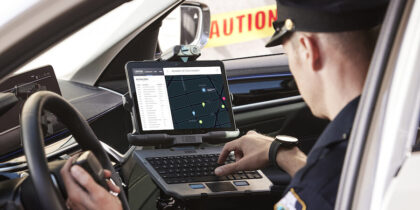Federal government is looking to become more data-driven so agency leaders can make better decisions faster. This is especially important as worldwide data is expected to grow tenfold by the year 2025 — driven especially by the proliferation of mobile devices. As a result, this year the government moved to position data as a strategic imperative. In March of 2018, the President’s Management Agenda laid out a new Cross-Agency Priority (CAP) Goal: Leveraging Data as a Strategic Asset to develop and implement a comprehensive Federal Data Strategy.
This strategy sets out to “create a coordinated approach to federal data use and management that serves the public.” As Jane Wiseman, senior fellow at the Harvard Kennedy School, noted, the President’s Management Agenda has set a goal for the federal government to “leverage data as a strategic asset.”
To follow through with the Federal Data Strategy, many agencies are making more concerted efforts in harnessing big data and analytics as well as data management strategies and tools.
Federal Focus on Data: The CDO
One strategy we have been seeing more frequently in government is the newly-created chief data officer (CDO) position, which has been critical in overseeing data management. In fact, the first agency CDO was created less than a decade ago particularly because of the growing availability of data as well as the tools to analyze it. Most recently, the House voted to authorize a CDO position at the Department of Homeland Security (DHS). While the role of CDOs varies from agency to agency (ranging from data management to data governance, literacy and analytics and provisioning of tools), there is more emphasis on hiring such leaders than ever before.
Prioritizing Mobile in Data Strategies
But to successfully leverage data strategically, mobility must be central to any agency’s data approach, and a key consideration for CDOs embracing their role. Not only can tablets and smartphones help collect data faster and more accurately than ever before — even in remote locations — they also allow federal workers to actually implement the insights from their data, wherever the mission takes them.
Digitize Your Government Agency
Get this guide to drive collaboration, boost productivity and ensure security in the public sector. Download Now
Here are some applicable use cases where agencies can leverage mobility to harness their data strategies.
Collecting Data Out in the Field
For agencies like the Census Bureau, field data collection is not only part of the everyday job — it’s also mission-critical. Whether in urban settings or rural areas, employees can use tablets and mobile devices like Samsung’s ruggedized Tab Active2. Such tablets incorporate GIS information to deliver personnel the ability to collect, access and manage data securely — without having to worry about excessive paper management or running back to the office to report the data they find.
Strengthening Inspections
Food and safety inspectors at the U.S. Department of Agriculture (USDA) often work in one or more privately owned meat, poultry and egg processing plants. Using mobile devices, the inspectors can capture data on the goods onsite and in real-time, ensuring accuracy and efficiency. Specifically, mobile productivity solutions like Samsung DeX — which connects the latest Galaxy smartphones to a monitor, keyboard and mouse for a desktop-like experience powered by the smartphone — allow users to access information across environments, whether personnel are processing paperwork in the office or recording notes onsite at the processing plant.
Delivering Critical Insights on the Battlefield
For warfighters placed in complex tactical environments, one wrong move could mean the difference between life and death. Wearables like the Samsung Gear S3 can help keep responders safe by monitoring health and performance. These devices, along with tablets and smartphones equipped with solutions like Tactical Edition, can deliver real-time data analytics, GPS coordinates and other insights to provide improved situational awareness and communications — all accessible in the palm of a hand or even strapped to a uniform.
Keeping Security Top of Mind
To make these use cases a reality, however, security must be at the center of any mobile data strategy. Governance and leadership will play a pivotal part in achieving that goal. According to Kris Rowley, CDO at the General Services Administration (GSA), “Security is very difficult. I would say in my space, people are always pushing me to be more innovative and creative and open more data and make it more accessible. Then someone in the federal government has a security breach, and all of the doors shut.”
A defense-grade security platform like Samsung Knox bakes in data protection down to the hardware of mobile devices. Knox provides granular access to device features, security options, customization settings and more, meeting stringent security requirements for civilian and defense agencies alike. With Knox, agencies enable their employees with the agility and flexibility they need to perform their best, without having to sacrifice security — indeed, improving it.
The Federal Data Strategy will play an increasingly important role in guiding federal government through stronger data management. CDO leadership will be key in overseeing this process and the transformation of their agencies into more data-driven entities. At the heart of it all, mobility will be central to these efforts in enabling real-time access, increased flexibility, faster insights, improved productivity and even security — all leading to better decision-making and a government better equipped to serve the public.
Learn more about how Samsung mobility can support the mission of federal government.








